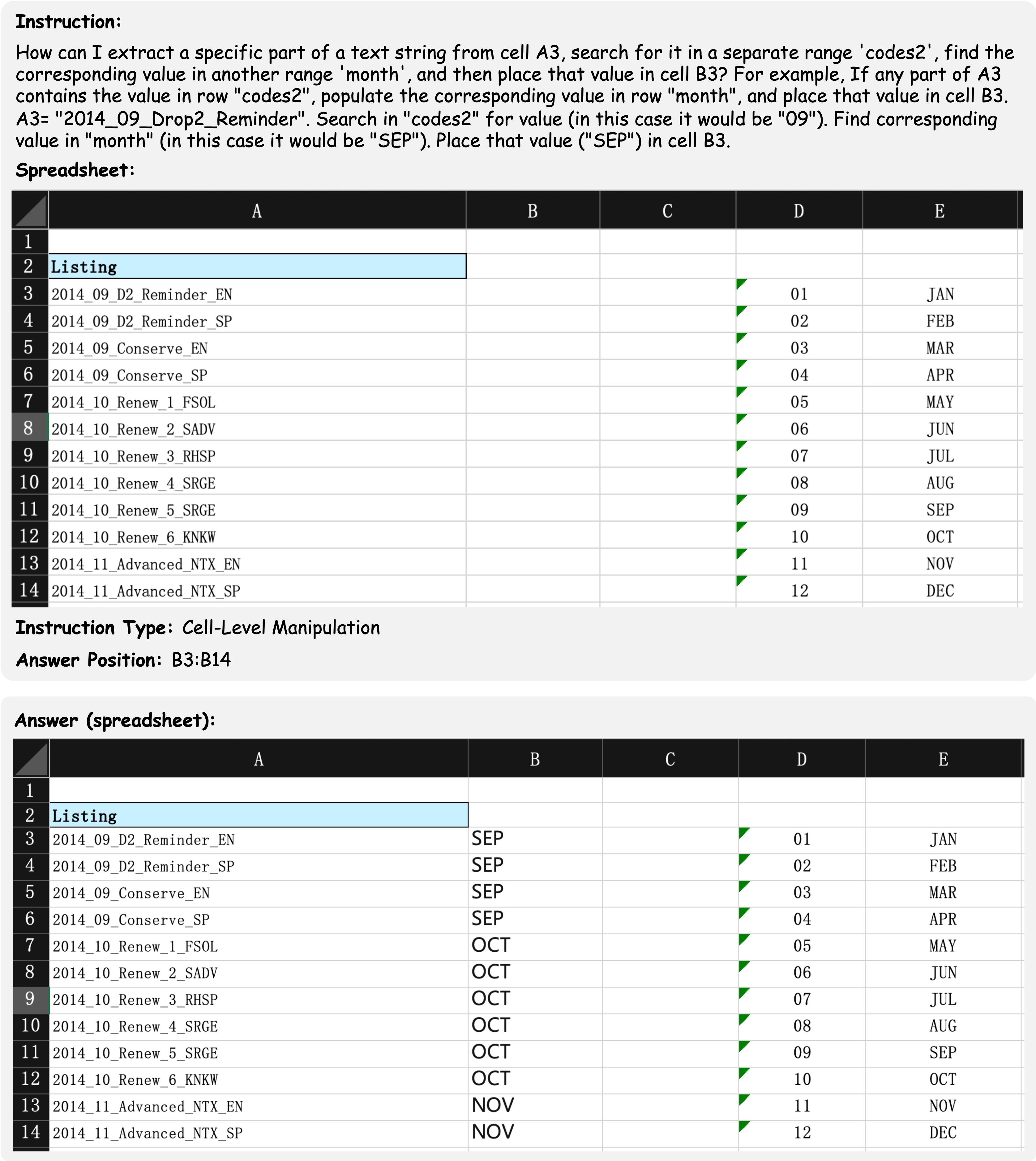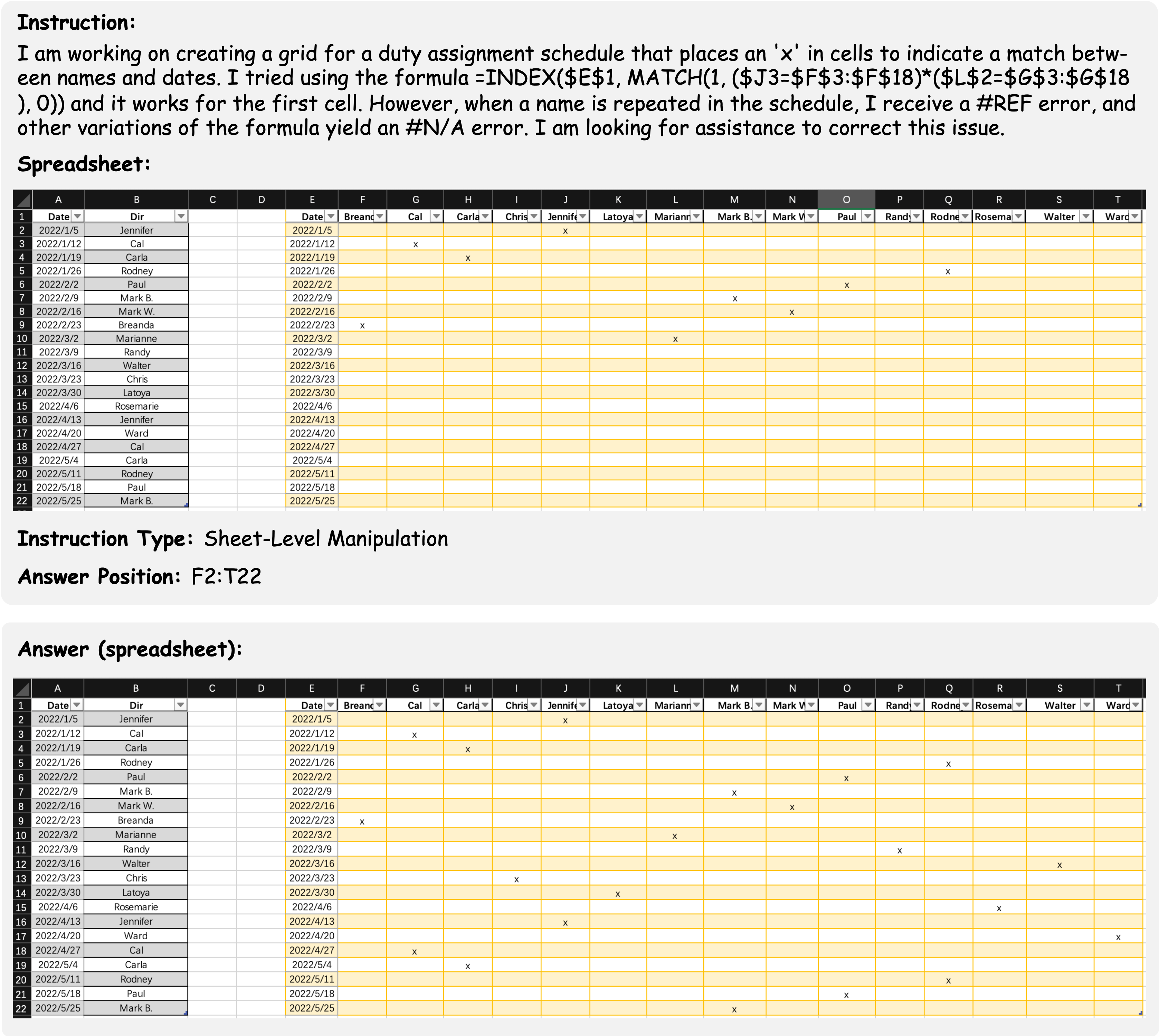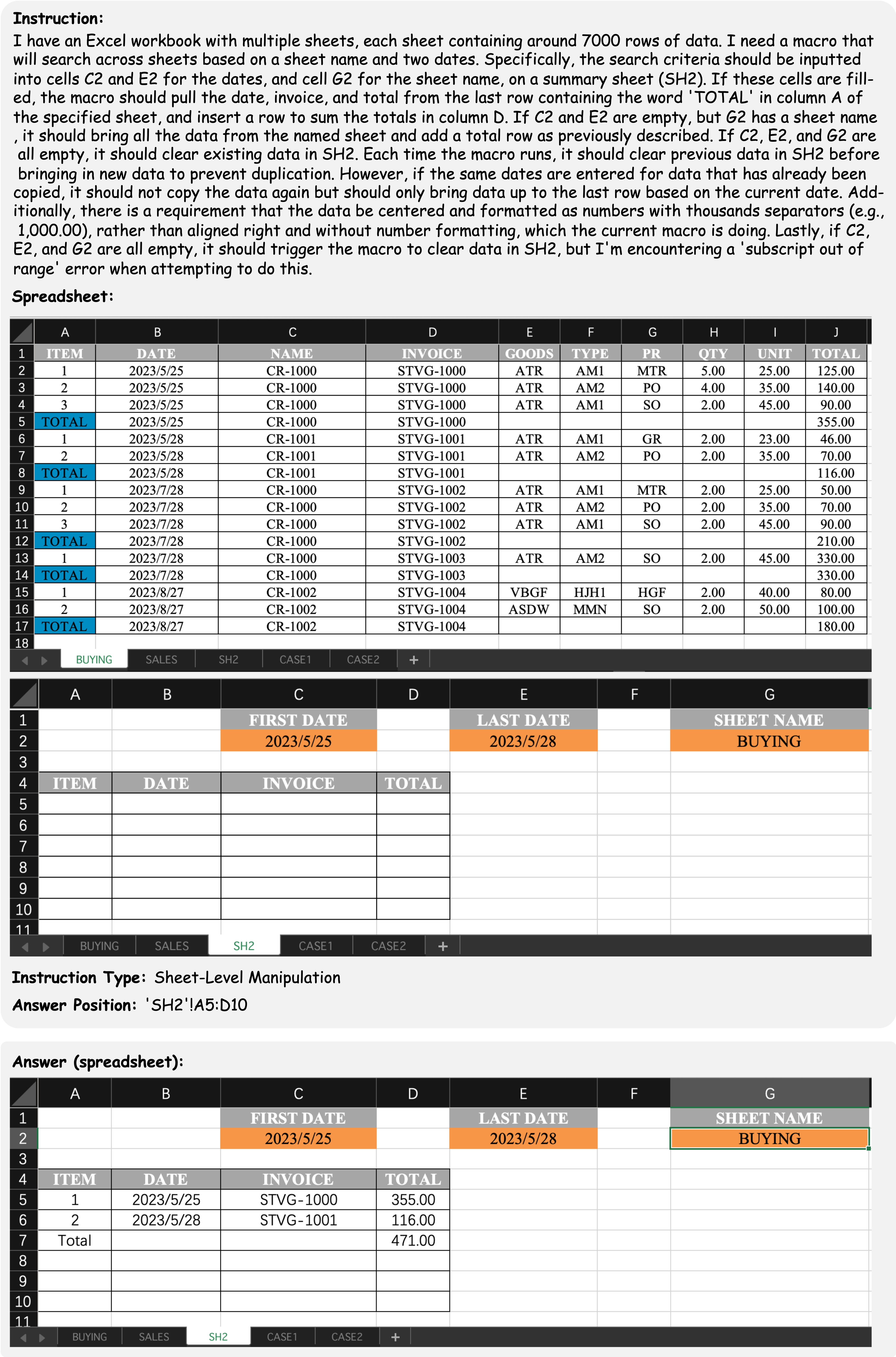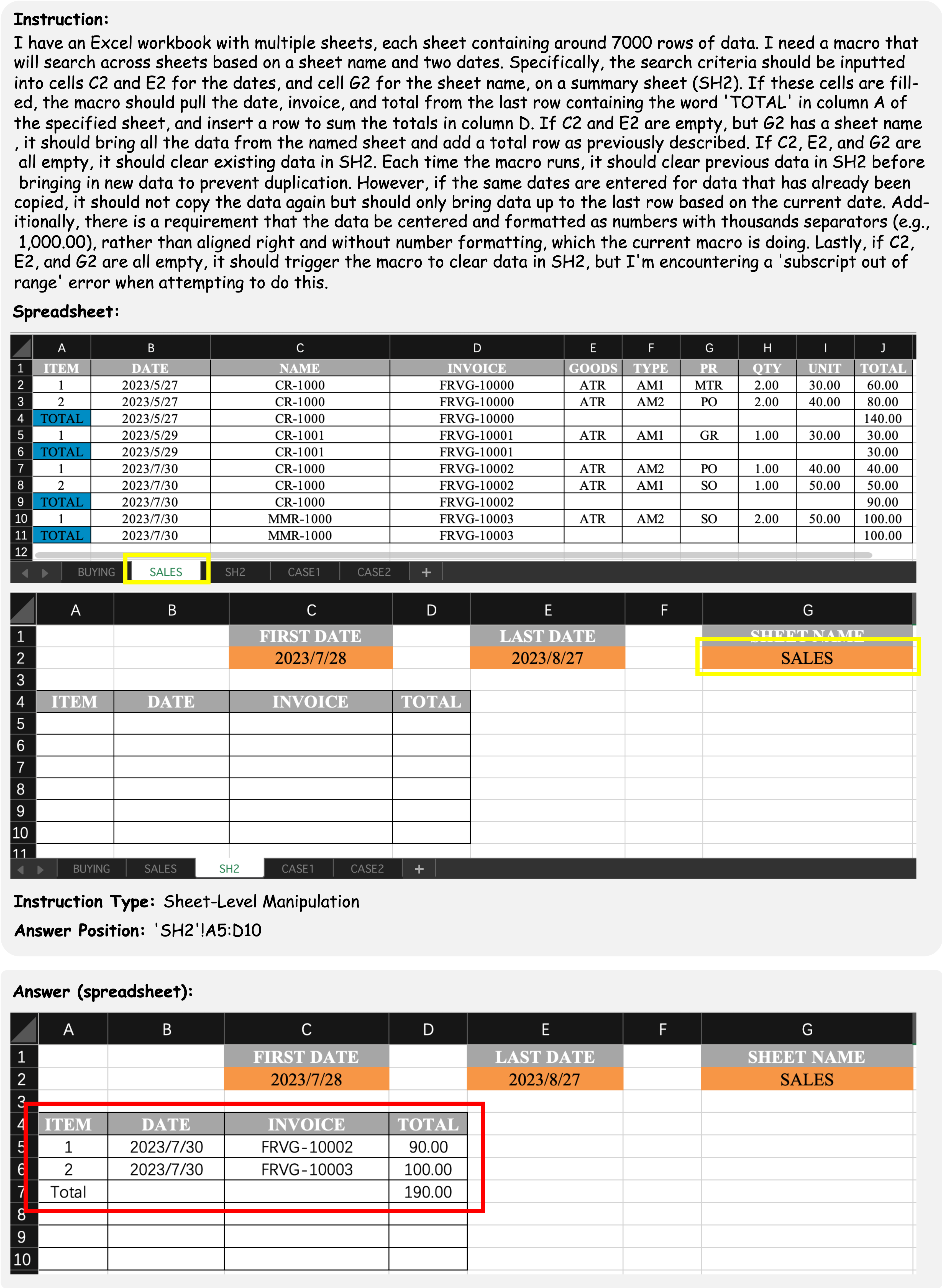
Example 1: A cell-level manipulation example question involves manipulating a non-standard relational table (missing header on column D and column E).
This example shows a cell-level manipulation data example which aims to extract a
specific part of a text string from a column of cells. The instruction contains
the demand of the user and an example manipulating action of the question, which
rarely occur in synthetic instructions of the previous benchmarks. Furthermore,
the table within the spreadsheet file is a non-standard relational table that
lacks a complete table header. The final result is required to be filled in the
cells from B3 to B14, which ensure the uniqueness of the answer.

Example 2: A sheet-level manipulation example question involves manipulating multiple tables in one sheet (first table from A1 to B22; second table from E1 to T22).
This example shows a sheet-level manipulation data example aimed at creating a grid
for a duty assignment schedule. The instruction contains the demand of the user,
the current formula solution and the error encountered by the user. Besides, the
spreadsheet file contains two relational tables in one sheet. The final result
should be filled in a two dimensional position (i.e., F2 to T22).

Example 3: A sheet-level manipulation example question involves manipulating multiple tables on multiple sheets.
This example shows a sheet-level manipulation data example aims to search across
sheets based on a sheet name and two dates (i.e., first date and last date). The
instruction contains a complex requirements, a detailed explanation, a manipulation
example and the error encountered by the user. Moreover, the spreadsheet file
contains multiple sheets, including the table to be manipulated (e.g., sheets named
BUYING or SALES) and examples of possible answers (e.g., sheets named CASE1 or CASE2).
The final result should be inserted into a two-dimensional location on the sheet named SH2.

Example 4: A test case modified from the question in Example 3.
This example shows a test case modified from the question in Example 3. This test case is
constructed following the user's requirements in the instruction. The user expects to obtain
a result that will search within a specific sheet name (cell G2). Only the rows with a date
falling between the first date (cell C2) and last date (Cell E2) should be returned. Therefore,
we modify the value of the sheet name (cell G2) to construct a new test case, as highlighted in
yellow. This test case yields search results in the SALES sheet, rather than the original
case that searches in the BUYING sheet. The values in the answer position also change, as
highlighted in red. By modifying the sheet name, we can alter the sheet that is being searched,
enabling a more comprehensive assessment of the solution's effectiveness.




